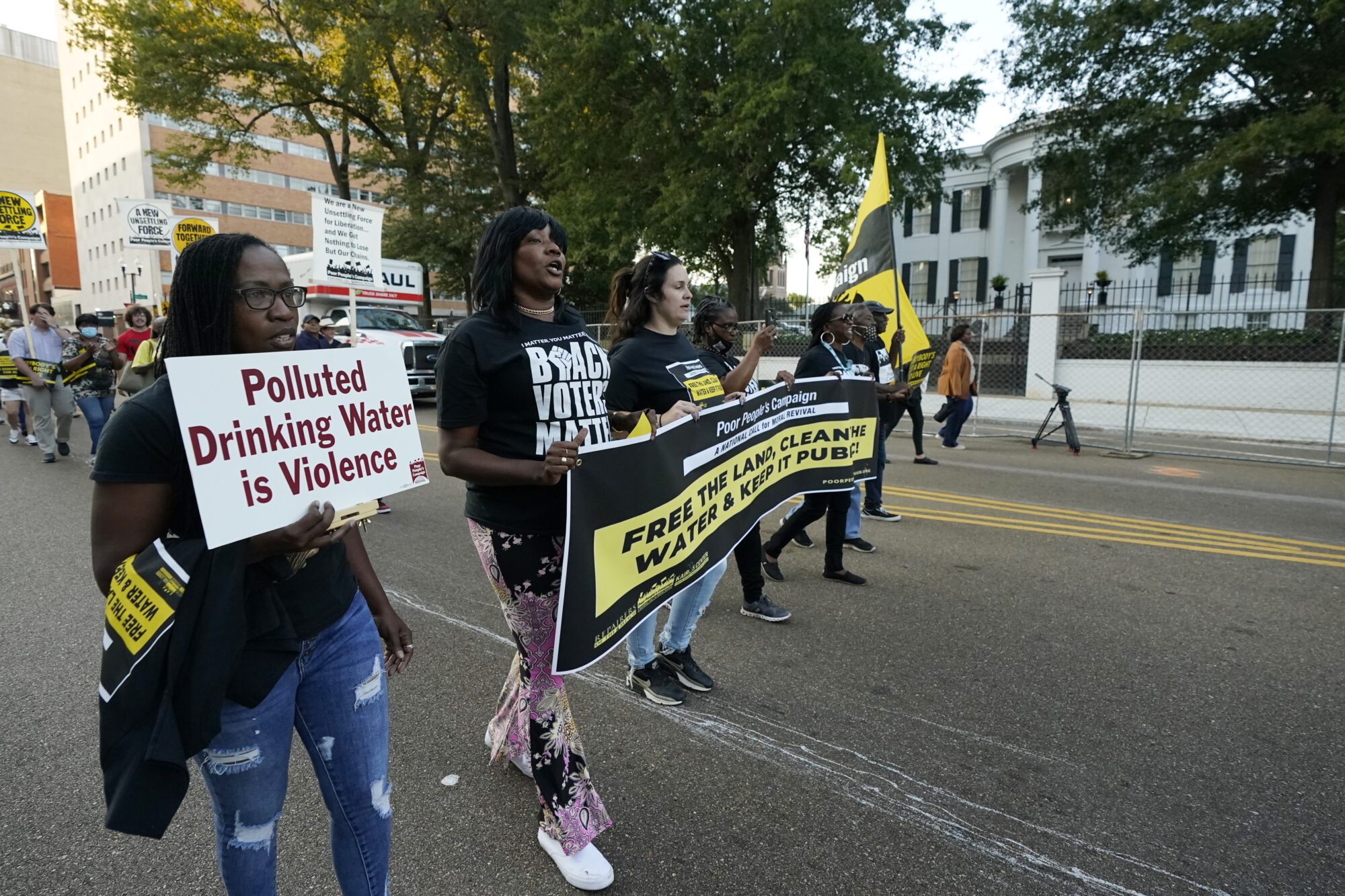
U.S. District Judge Henry Wingate smiles on Aug. 19, 2022, in Jackson, Miss. Wingate ruled Thursday, June 1, 2023, that the Mississippi chief justice cannot be a defendant in a lawsuit that challenges a state law dealing with appointed judges. (AP Photo/Rogelio V. Solis, File)
U.S. District Judge Henry Wingate outlined the crime problem in Jackson in his order on Thursday, telling the “story of a City coming apart and in search of enduring glue to hold it together.”
On Thursday, U.S. District Court Judge Henry Wingate dismissed Mississippi Chief Justice Mike Randolph from the lawsuit filed by the NAACP challenging HB 1020, the law that expands the jurisdiction of the Capitol Police and allows for newly appointed judges in the Jackson area.
READ MORE: Mississippi Chief Justice removed from NAACP’s lawsuit against HB 1020
The new law is currently under an injunction. It passed the Legislature this year with the goal of providing additional resources and supplementing law enforcement assistance to curb crime in Mississippi’s capital city. However, the NAACP claims HB 1020 robs the citizens of Jackson of equal protection of the laws by depriving them of certain rights accorded to every other Mississippi resident, specifically, the right to elect their Circuit Court judges.
In the order dismissing Chief Justice Randolph, Judge Wingate outlined the crime problem in Jackson, saying the city has “a crime cancer.”
“Jackson’ s crime problem is sweltering, undisputed and suffocating. The FBI crime statistics tell the sorrowful story: In 2020, Jackson reported 130 homicides—a record number at that time,” Wingate wrote. “In 2021, Jackson surpassed that record with at least 155 reported homicides—’the highest per capita murder rate in the nation . . . . [h]igher than Birmingham, Atlanta, Detroit, and even Chicago.’
Judge Wingate went on to state that in 2022, “even with a 14% decline in homicides, Jackson reported 138 homicides that year, and Jackson’s ‘homicide rate still managed to surpass every other major city in the U.S. for the second straight year.”
“Homicides may be the headline grabber, but Jackson’s other violent crime categories battle for equal condemnation: Rape, Robbery, Aggravated Assault, Sexual Assault, and Burglary rates continue to be among the highest nationwide, per capita,” Wingate said.
Judge Wingate went further, stating:
Caught in this ‘race to the grave’ are the most innocent – young children [who are] still developing lungs had barely tasted the nutritious air which was their birthright. On the other end of this ‘killfest’, are the senior citizens hoping to spend their golden years in retired harmony with family and friends, instead of outfitting their homes as fortresses, fearing any strange noise around their houses and dreading the prospect of having to arm themselves.
Jackson street gangs, who successfully recruit the impressed baby-minded school dropouts who ‘wannabe gangsters’ when they grow up, figure prominently in this story of a City coming apart and in search of enduring glue to hold it together.
These ‘facts of Jackson’ have [crippled] the criminal justice system, especially with a police presence which is crying for reinforcement. Once this proud City boasted a force of approximately 400 sworn police officers, with applicants aplenty vying for the occasional vacancy which occurred.
Now, the situation is markedly different. Jackson now has a police force of approximately 258 sworn officers, with hardly any applicants. Many welcome recruits take the oath, undergo free police certification in a 28-week regimen, then take the earned certification, valid anywhere else in the nation, to another State/City where the pay is much higher, and the job danger is much lower.
Judge Wingate continued, pointing out that Jackson blames its fiscal dilemmas as the source of its plight – fiscal concerns rooted in, inter alia, downgrading of the City’s bond rating, urban blight, growing vagrancy, a dysfunctional city government, and a poverty-stricken citizenry.
“Regardless,” Wingate opines, “Jackson has a crime cancer.”
Wingate states that the Mississippi Legislature has taken note, “but not in the manner Jackson desires.”
“Jackson laments that it is in dire need of state funds for its endeavors, for its police force, and for courts and its personnel,” Wingate wrote. “The State Legislature, nervous about sending money to Jackson for its courts, passed H.B. 1020.”











